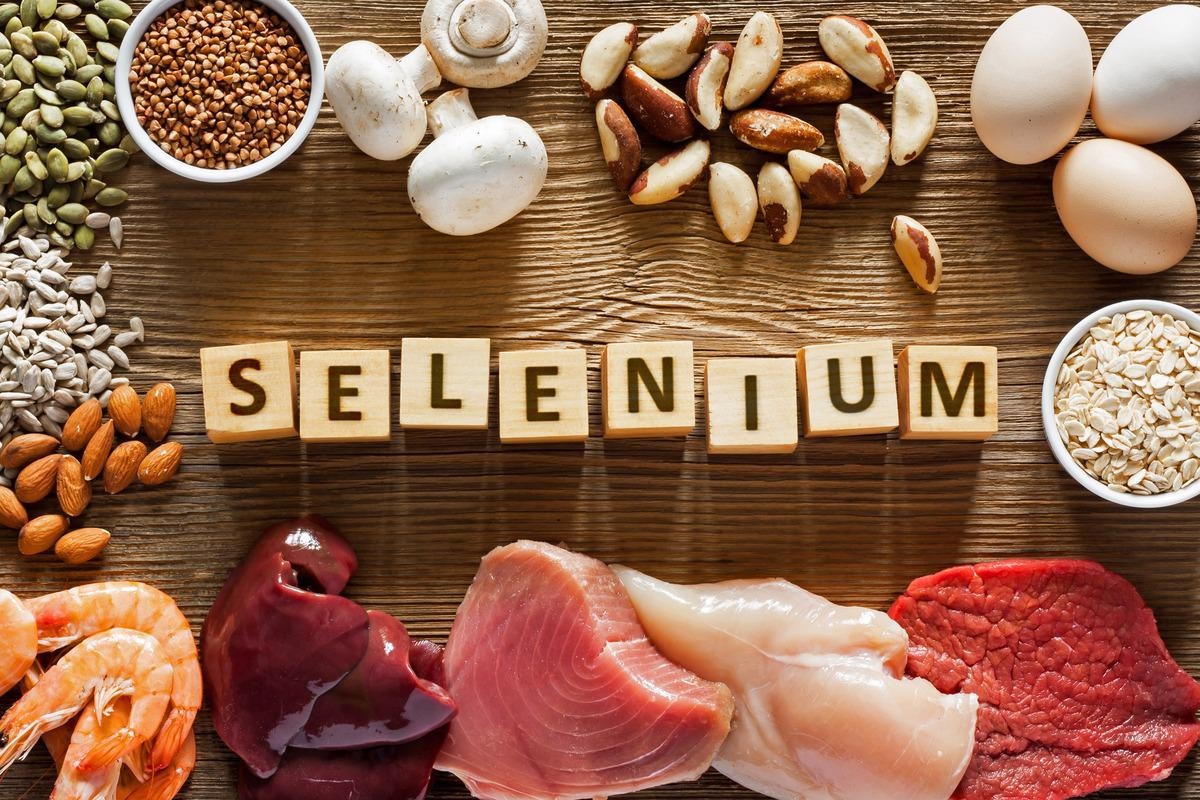Selenoproteins have the 21st amino acid, selenocysteine incorporated into their polypeptide chain. This is the primary mechanism by which selenium can help biological functions. There are at least 25 genes encoding for selenoproteins in humans, some of which are essential in development.
They are also known to play important roles in disease pathogenesis. GPX 1-4, for examples, is heavily involved in antioxidation, while TXNRD 1–3, methionine sulfoxide reductase B (MSRB)1, selenoproteins (SELENO) H, M, and W are important for redox regulation. Iodothyronine deiodinase (DIO) 1–3 is used in thyroid hormone metabolism, and SELENOP for selenium transport and storage.
 Study: Role of Selenium in Viral Infections with a Major Focus on SARS-CoV-2. Image Credit: Evan Lorne/Shutterstock
Study: Role of Selenium in Viral Infections with a Major Focus on SARS-CoV-2. Image Credit: Evan Lorne/Shutterstock
Researchers from the Florida International University have been reviewing research on the role that selenium could play in protecting individuals against coronavirus disease 2019 (COVID-19) and have published their findings in the International Journal of Molecular Sciences.
The study
Selenium may act upon the severe acute respiratory syndrome coronavirus 2 (SARS-CoV-2) virus by restoring GPX and TXNRD, which would reduce oxidative stress, reduce viral-induced cell apoptosis, protect endothelial cells and reduce blood platelet aggregation. The heightened level of oxidative stress and inflammation typically seen in patients with severe COVID-19 are implicated in the pathogenesis of pulmonary disease. GSH is known to protect the epithelial barrier within the lungs.
Much of the inflammation in severe COVID-19 occurs when SARS-CoV-2 attempts to infect endothelial cells, which rapidly die and spread cell debris widely, triggering inflammation signals. Improvement of GSH levels could protect against this.
In a study examining the effect of supplementing sodium selenite levels in patients with ARDS – often seen in severe COVID-19 cases – it was found that this reduced inflammation, improved respiratory mechanics and restored the antioxidant capability of the lungs. It is also possible that selenium status could affect the function of B and T cells in COVID-19 patients, as severe COVID-19 patients often show lower levels of lymphocytes, CD4+, CD8+, B, and NK cells compared to individuals with a more mild form of the disease.
Unfortunately, there is little concrete data on the relationship between selenium and COVID-19. However, China naturally has a wide range of selenium levels in soil, and a similar range of levels in the population. It has been reported that there is a linear association between COVID-19 cure rates and selenium levels in hair, with higher selenium levels corresponding to a significant increase in cure rates.
A similar association can be seen with fatality risk. This could be seen most in Wuhan, Suizhou and Xiaogan. Another study in Wuhan revealed that severity of COVID-19 was associated with higher selenium levels in urine, possibly due to liver abnormalities resulting from the disease.
A South Korean study took a narrower focus on selenium and COVID-19, specifically investigating the levels of selenium in hospitalized COVID-19 patients. While they did discover that 42% of COVID-19 patients were selenium deficient, and that selenium levels decreased as severity of the disease increased, they also showed multiple other nutritional deficiencies. Similar studies in India, Iran, and Russia all showed lower levels of selenium in plasma in COVID-19 patients compared to healthy patients.
A study investigating selenium levels in serum in Germany found that patients who had survived COVID-19 were less likely to have a selenium deficiency than those who died. A similar study in Belgium examining individuals with COVID-19 pneumonia found both lower GSH and GPX compared with references, as well as higher markers of oxidative stress and lower antioxidant status.
There is currently one study examining the efficiency of treatment with selenious acid infusion for moderately, severely and critically ill COVID-19 patients, and no clinical trials ongoing. Sodium selenite is available easily, mostly non-toxic in the short term, and can cross the blood-brain barrier. It also has the potential effect to oxidize thiol groups, which could prevent the virus from entering the cells.
Conclusion
The authors conclude that selenium is important in protecting the host against viruses such as SARS-CoV-2, and when individuals are deficient in selenium, important functions such as redox homeostasis, antioxidant stress, and reduction of oxidative stress are significantly impaired. The reduction in selenium levels in serum and plasma from severe COVID-19 patients likely indicates a lack of functional selenoproteins. This information could be very valuable to drug development manufacturers and COVID-19 researchers and could help develop selenium-based treatments.